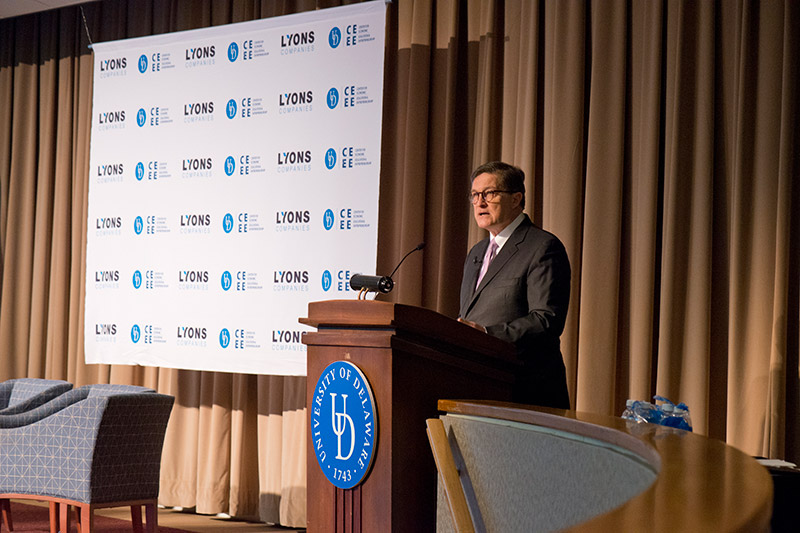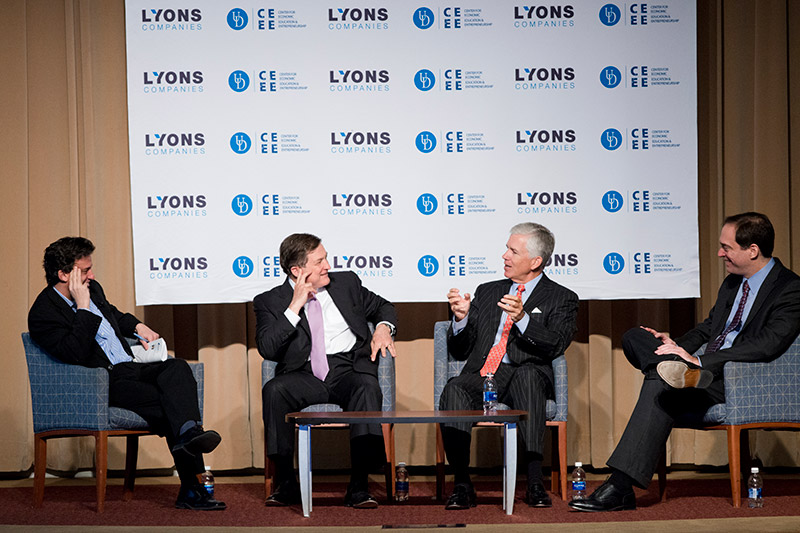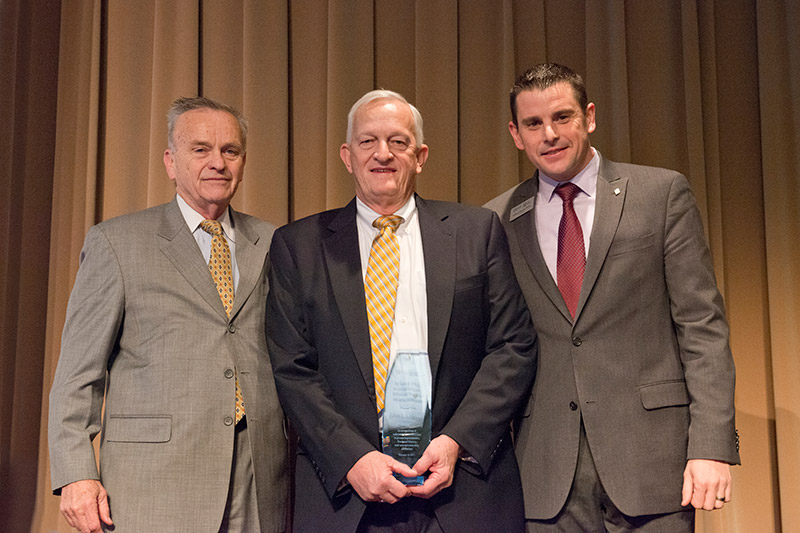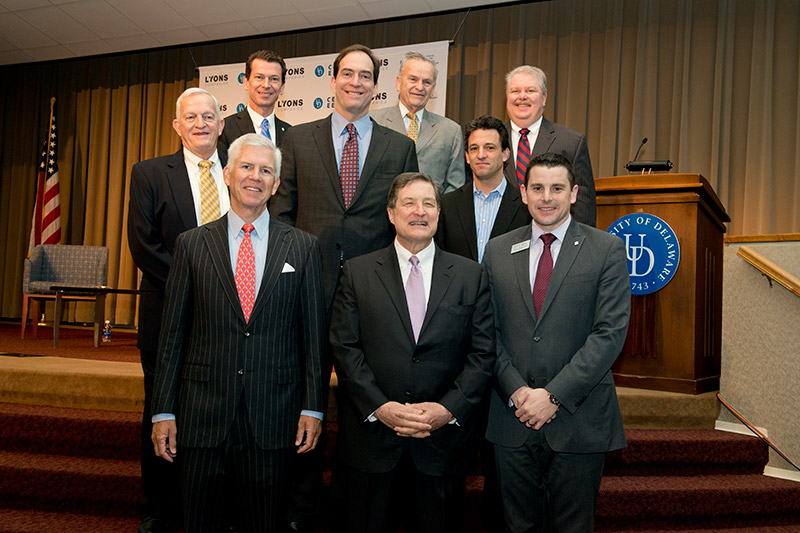

The economy of today and tomorrow
Photos by Lane McLaughlin March 03, 2017
2017 Economic Forecast provides recognition of the past, insights for the future
The University of Delaware’s 2017 Economic Forecast, hosted by UD’s Center for Economic Education and Entrepreneurship (CEEE) in partnership with Lyons Companies, offered insight on the economy of the past and forecasts for its future from experts including:
• Jeffrey M. Lacker, president and CEO of the Federal Reserve Bank of Richmond;
• Michael K. Farr, president of investment advisory firm Farr, Miller and Washington; and
• J. J. Johnson, executive vice president of Fidelity Investments
Lacker introduced his economic forecast with an acknowledgement of the fact that the United States is currently experiencing a unique era in history.
“We are certainly living in interesting times, which makes it more challenging than usual to predict what might be in store for the U.S. economy,” said Lacker, who will be retiring in the coming year.
However, he was willing to prognosticate, offering some discussion of the current economic expansion, which he said has been both longer and slower than past generations.
Lacker also contended that interests rates should be rising faster.
“I have been arguing for some time that the Fed’s interest rate target is exceptionally low and that upward adjustment is needed,” Lacker said. “I have based that in part on the behavior of benchmarks that capture the historical behavior of interest rates — that is, how policy rates respond to inflation and employment — during times when monetary policy has been relatively effective.... Currently, almost all of these benchmarks recommend higher interest rates, in most cases substantially higher rates.
"In particular,” he continued, “delaying interest rate increases when unemployment falls below levels corresponding to full or maximum employment can result in an unanticipated rise in inflation pressures that necessitates relatively sharp upward adjustments in rates."
Lacker added that while the unemployment rate is currently low, this may change. This is because, he explained, current employment growth may be faster than needed to keep up with the growth of the working age population.
“The labor force is expanding much more slowly,” he said, which could make higher growth rates “a stretch.”
“At present, some economists estimate that it would take annual employment growth of just six-tenths of 1 percent, or 60,000 jobs a month, to keep up with the working population,” Lacker said.
Lacker was also posed the question: If you could change one thing that you believe will improve U.S. economic conditions, what would that one thing be and why?
Lacker’s answer? Investing in K-12 education, he said, is one of the best and most impactful ways to improve the future economy.
Farr’s discussion, which followed Lacker’s, focused on income inequality. Farr said that economic inequality “will continue to be a long-term drag on economic growth.
“The math doesn’t work, it doesn’t come close to working,” Farr added about Social Security. “But no one politically wants to touch it.”
During his presentation, Farr polled the audience to get their opinions. Based on their responses, he estimated that about 71 percent of them were confident or very confident in the economy.
Finally, Johnson concluded the presentations with a discussion of regulations, emphasizing the ways that regulations are well meaning but time-consuming.
"Americans spend 9.78 billion hours complying with federal regulations on an annual basis,” Johnson said. This is why, he explained, the strategic allocation of resources is critical.
Recognizing an outstanding economic educator
The Economic Forecast’s day of discussion began with an important recognition: Economics chair Jim Butkiewicz received the 2017 James B. O'Neill Award. In his acceptance speech, Butkiewicz praised the Master of Arts in Economics and Entrepreneurship for Educators (MAEEE) program offered by the CEEE.
“I remember when we started the program in 1981, and Jim O’Neill had the courage to ask two young assistant professors to teach in the program,” Butkiewicz said. “The other young economist was a good friend of mine, and I said to him, ‘This could be the most important teaching we ever do, because each one of these teachers that we teach is going to teach many more students than we see in here. So we’d better get it right.’”
Butkiewicz said that he was first assured of the program’s success when the students presented a skit about inflation.
“1981 was a year of high inflation in the United States, and at the end of the summer, the students put on a little skit for us, and they titled the skit, ‘Miss Anne Flation,’” Butkiewicz said. “I remember sitting there, watching it and thinking...‘They’re getting it all right.’ So I knew the program was going to work.”
Fast-forwarding to today, Butkiewicz said many of these teachers are still teaching economics, and some are working at other centers for economic education around the country and the world.
“We’ve really taken a leadership role in economic education nationally, and indeed even in the world,” Butkiewicz said. “To have played a small role in the success of this program makes me very proud, and to receive this award is very humbling.”
Contact Us
Have a UDaily story idea?
Contact us at ocm@udel.edu
Members of the press
Contact us at 302-831-NEWS or visit the Media Relations website





